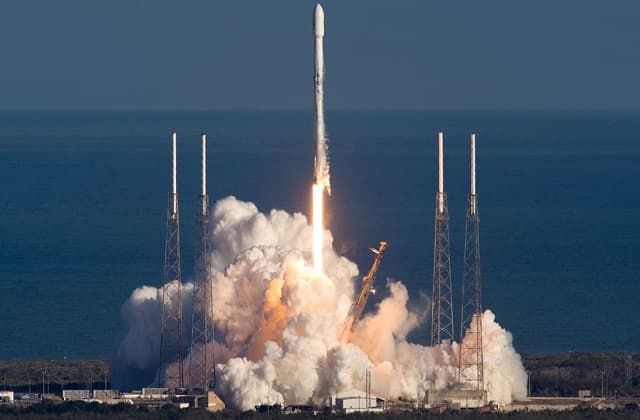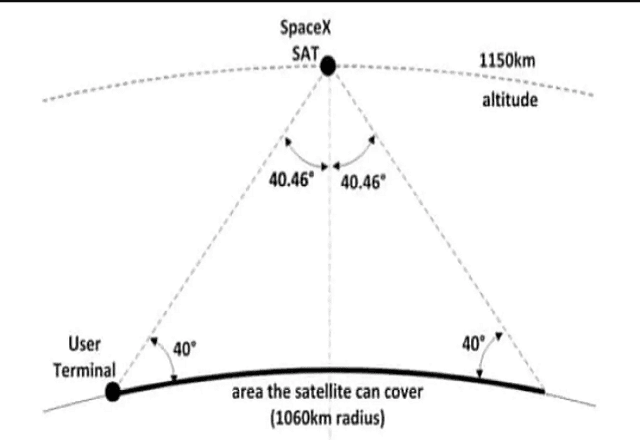SpaceX plans to offer Internet services to the world via a network of satellites
Elon Musk's SpaceX has been planning to provide high-speed 5G like internet services to the billions of people all around the globe via satellites. It aims to build its own constellation of satellites dubbed 'Starlinks'. The private space giant seems one step closer to the dream as it has already began the process of launching satellites into the Low-Earth Orbit. The first two satellites for the mission are waiting at the Vandenberg Air Force Base, California, aboard Falcon 9 rocket. As such, SpaceX is now on a collision course with the world's biggest telecom companies as well as the satellite manufacturing companies.

The mission was earlier scheduled for today but was later delayed until 21st of February. The first two test satellites are named Microsat 2a and 2b. These will become functional next year when the platform will enter a rigorous testing phase for about 20 months. The company intends to launch about 12,000 satellites into the orbit to make the Starlink fully operational. The company’s goal is to have over 40 million customers subscribed by 2025, which would amount to nearly $30 billion in total revenue according to the estimates of the Wall Street Journal.
Although the #-Link-Snipped-# is already available today, it is very costly and slow. Signal fluctuation is another problem associated with it. As such, access of the general public is limited. However, with Starlink becoming operational with at-least 800 satellites in the orbit, the satellite broadband can become a reality for everyone.

Geometric representation of the area that a single satellite could cover
According to the documents from the Federal Communications Commission (FCC), USA, the internet speeds will be like #-Link-Snipped-#. The network will be operating in 4,425 Ka/Ku spectrum zone. The network speeds being available even in the remotest areas of the planet, the current system of tower-to-tower communication may find less takers or even come to an end.
The Starlink project is surely very ambitious and the stakes are too high. Many tech-giants have tried and failed fully or partially in such projects earlier as Boeing and IBM for instance. However, given the current growth in space technology, Starlinks project can be deemed to be safe. After all no harm placing our bets for high-speed internet accessible anywhere on the globe via satellites, right.
Source: #-Link-Snipped-#

Although the #-Link-Snipped-# is already available today, it is very costly and slow. Signal fluctuation is another problem associated with it. As such, access of the general public is limited. However, with Starlink becoming operational with at-least 800 satellites in the orbit, the satellite broadband can become a reality for everyone.
Geometric representation of the area that a single satellite could cover
The Starlink project is surely very ambitious and the stakes are too high. Many tech-giants have tried and failed fully or partially in such projects earlier as Boeing and IBM for instance. However, given the current growth in space technology, Starlinks project can be deemed to be safe. After all no harm placing our bets for high-speed internet accessible anywhere on the globe via satellites, right.
Source: #-Link-Snipped-#
0
